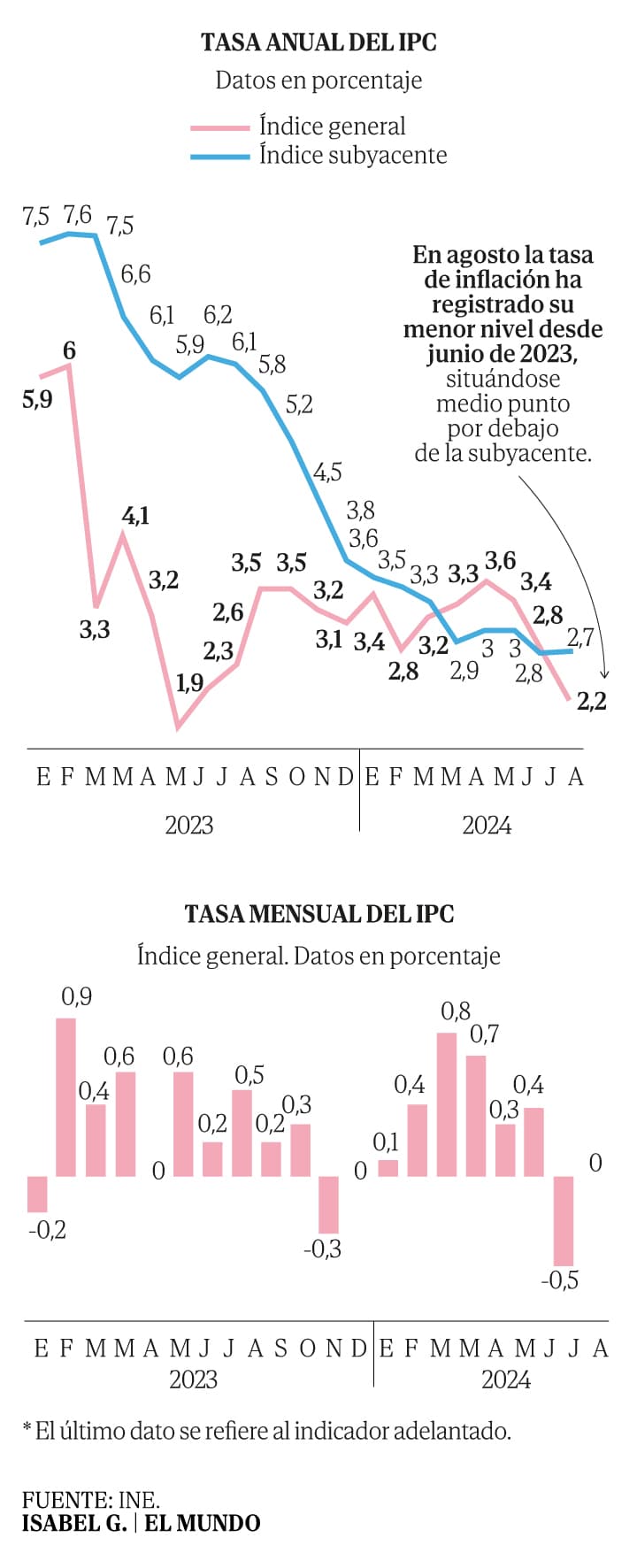Impact of inflation on daily life in Spain: Useful strategies to adapt to economic changes

Inflation has emerged as a phenomenon that deeply affects everyday life in Spain, generating significant changes in consumption habits and in the economic stability of families. From rising prices for basic products to increased costs for essential services, the population faces daily challenges that require new strategies to adapt to this ever-evolving economic landscape. This article examines the various impacts of inflation and presents practical tips that can help citizens manage their finances better in this challenging context.
Inflation has been a recurring theme in the economic sphere of Spain, significantly affecting the daily life of its citizens. From the rise in food prices to the escalation of rents and energy bills, this phenomenon has generated a profound impact on the purchasing power of families. This article examines how inflation has shaped different aspects of daily life and presents valuable strategies to adapt to these changing circumstances.
The rise in food prices
One of the most immediate effects of inflation is observed in the price of the shopping basket. In recent years, basic products such as oil, bread, and eggs have seen significant increases in their cost. For example, sunflower oil has gone from costing approximately 1.20 euros per liter to more than 2 euros in many establishments. This increase directly affects family budgets, forcing many to reconsider their shopping habits.
Increase in rents in major cities
Another crucial aspect that has been severely impacted by inflation is the rental market, especially in cities like Madrid and Barcelona. Rental prices have experienced a notable increase, with a rise of 10-12% in recent years. The difficulty in finding an affordable apartment is leading many families, especially young ones, to move to peripheral areas, creating a new dynamic in the real estate market.
Cost of electricity and gas bills
The energy sector is another major affected area, where electricity and gas bills continue to weigh heavily on household budgets. Despite government measures to control these prices, it is estimated that in 2024 the average Spanish family will pay between 100 and 150 euros per month just for energy. This has driven many to seek ways to reduce their consumption, raising questions about long-term economic sustainability.
Increase in transportation and fuel rates
Public transportation is also not left behind, as its rates have also been increasing. The price of a metro or bus ticket in Madrid, for example, has risen from 1.50 to 1.60 euros. In addition, the cost of fuels has exceeded 1.60 euros per liter, significantly affecting those who rely on their cars for daily mobility. This has led many to rethink their transportation options to optimize expenses.
Changes in saving and investment habits
In the face of rising inflation, many have seen the need to modify their savings habits. With interest rates on bank accounts remaining low, there is a noticeable movement towards alternatives such as investing in real estate or mutual funds. However, these options also present their challenges, as the real return on these investments is affected by inflation.
Practical strategies for adaptation
In light of this situation, it is vital for families to implement strategies to adapt to the new economic reality. Some recommendations include:
- Smart shopping: Consider white label brands in supermarkets, which offer products at more competitive prices.
- Adjustments in energy consumption: Use energy-efficient appliances and LED bulbs to reduce electricity expenses.
- Review of rental contracts: Negotiate with landlords about the possibility of keeping prices within reason.
- Using public transportation: Opt for this option to reduce fuel expenses, generating long-term savings.
Inflation impacts every corner of daily life in Spain, from food to housing and energy consumption. As economic circumstances continue to evolve, it is essential to find ways to optimize expenses and adapt to the changes present in the financial environment. The strategies outlined offer a way forward in the face of the inflationary reality affecting the Spanish population.
Inflation, a phenomenon that has gained great relevance today, has profoundly affected the daily life of Spaniards. From the rise in the cost of basic products to increases in rents and services, the economic pressure is felt in every corner of the country. Families have experienced decreases in their purchasing power, which has forced many to rethink their consumption and saving habits.
In response to this situation, it is essential to adopt strategies that allow mitigating the negative effects of inflation. One of the most effective recommendations is to make smart purchases, opting for white label brands or discounted products. Likewise, adjusting energy consumption through efficient appliances and using LED bulbs can help reduce monthly bills. Purchasing decisions become crucial, as well as reviewing unnecessary expenses.
Another area that has seen significant changes is housing management. The search for affordable rents has led many people to explore options outside urban centers. This type of adaptation not only helps reduce the impact of inflation on housing costs but also promotes a more sustainable lifestyle in less congested areas.
The importance of public transportation has also increased in this context. Opting for more economical alternatives and those less dependent on vehicle use can generate considerable savings in monthly expenses. It is key for citizens to recognize the importance of adjusting their lifestyles according to the current economic realities.
In summary, inflation has posed a significant challenge in daily life in Spain, but with adequate measures and conscious planning, it is possible to face these economic changes more effectively.



